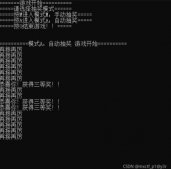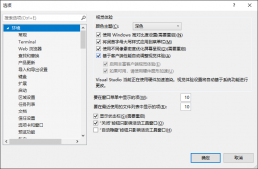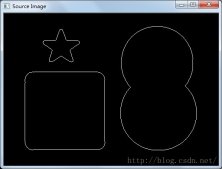标准库的string类提供了3个成员函数来从一个string得到c类型的字符数组:c_str()、data()、copy(p,n)。
1. c_str():生成一个const char*指针,指向以空字符终止的数组。
注:
①这个数组的数据是临时的,当有一个改变这些数据的成员函数被调用后,其中的数据就会失效。因此要么现用先转换,要么把它的数据复制到用户自己可以管理的内存中。注意。看下例:
const char* c;
string s="1234";
c = s.c_str();
cout<<c<<endl; //输出:1234
s="abcd";
cout<<c<<endl; //输出:abcd
上面如果继续用c指针的话,导致的错误将是不可想象的。就如:1234变为abcd
其实上面的c = s.c_str(); 不是一个好习惯。既然c指针指向的内容容易失效,我们就应该按照上面的方法,那怎么把数据复制出来呢?这就要用到strcpy等函数(推荐)。
//const char* c; //①
//char* c; //②
//char c[20];
char* c=new char[20];
string s="1234";
//c = s.c_str();
strcpy(c,s.c_str());
cout<<c<<endl; //输出:1234
s="abcd";
cout<<c<<endl; //输出:1234
注意:不能再像上面一样①所示了,const还怎么向里面写入值啊;也不能②所示,使用了未初始化的局部变量“c”,运行会出错的 。
② c_str()返回一个客户程序可读不可改的指向字符数组的指针,不需要手动释放或删除这个指针。
2. data():与c_str()类似,但是返回的数组不以空字符终止。
3. copy(p,n,size_type _Off = 0):从string类型对象中至多复制n个字符到字符指针p指向的空间中。默认从首字符开始,但是也可以指定,开始的位置(记住从0开始)。返回真正从对象中复制的字符。------用户要确保p指向的空间足够保存n个字符。
// basic_string_copy.cpp
// compile with: /EHsc /W3
#include <string>
#include <iostream>
int main( )
{
using namespace std;
string str1 ( "1234567890" );
basic_string <char>::iterator str_Iter;
char array1 [ 20 ] = { 0 };
char array2 [ 10 ] = { 0 };
basic_string <char>:: pointer array1Ptr = array1;
basic_string <char>:: value_type *array2Ptr = array2;
cout << "The original string str1 is: ";
for ( str_Iter = str1.begin( ); str_Iter != str1.end( ); str_Iter++ )
cout << *str_Iter;
cout << endl;
basic_string <char>:: size_type nArray1;
// Note: string::copy is potentially unsafe, consider
// using string::_Copy_s instead.
nArray1 = str1.copy ( array1Ptr , 12 ); // C4996
cout << "The number of copied characters in array1 is: "
<< nArray1 << endl;
cout << "The copied characters array1 is: " << array1Ptr << endl;
basic_string <char>:: size_type nArray2;
// Note: string::copy is potentially unsafe, consider
// using string::_Copy_s instead.
nArray2 = str1.copy ( array2Ptr , 5 , 6 ); // C4996
cout << "The number of copied characters in array2 is: "
<< nArray2 << endl;
cout << "The copied characters array2 is: " << array2Ptr << endl;
////注意一定要使array3有足够的空间
//char array3[5]={0};
//basic_string<char>::pointer array3Ptr=array3;
//basic_string<char>::size_type nArray3;
//nArray3 = str1.copy(array3,9); //错误!!!!
//cout<<"The number of copied characters in array3 is: "
// <<nArray3<<endl;
//cout<<"The copied characters array3 is: "<<array3Ptr<<endl;
}
上面最后注释掉的部分,虽然编译没有错误,但是运行时会产生错误:Stack around the variable 'array3' was corrupted.














